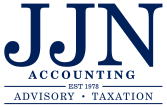Overview and Taxation of Trusts What is a Trust The principle of trust, or “Fideicommissum”, dates back to circa 200 BC, first mentioned by Publius Terentius Afer in the Roman comedy of Andria at 290–98 “tuae mando fide”, meaning “I commit to your faith”. The concept of Trust was used by the Romans where a testator would appoint a trustee as heir acting as a fiduciarius entrusted with passing the inheritance on to the beneficiaries, the so-called fideicommisarius. Around the 12th century and under the jurisdiction of the King of England, the first inter vivos Trust was developed which permitted the transfer of an asset or gift made during one’s lifetime, as opposed to a testamentary transfer that takes effect on the death of the giver. A Trust, therefore, is a fiduciary relationship in which one party, known as a Settlor, gives another party, the Trustee, the right to...
